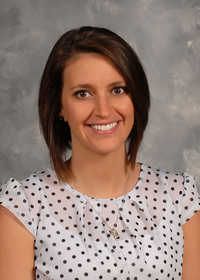Information Possibly Outdated
The information presented on this page was originally released on August 25, 2015. It may not be outdated, but please search our site for more current information. If you plan to quote or reference this information in a publication, please check with the Extension specialist or author before proceeding.
State veterinarian unites agencies against bird flu
PEARL, Miss. -- The Mississippi Board of Animal Health will not be alone in the battle to protect the state’s poultry industry from bird flu this winter.
“Now is the time to make sure our response plans are in place to minimize bird losses and economic damage when migratory birds return from infected nesting grounds,” said Dr. Jim Watson, state veterinarian with the Mississippi Board of Animal Health.
Watson recently invited university poultry experts, agriculture officials and representatives of Mississippi poultry companies to a meeting at the Mississippi State University College of Veterinary Medicine Poultry Diagnostic Laboratory in Pearl to address concerns.
“Of the 21 states with highly pathogenic avian influenza outbreaks from last December through June, some of them handled their responses without external forces coming in from the U.S. Department of Agriculture,” Watson said. “If Mississippi has an outbreak, we must be prepared to handle the response ourselves because USDA may be deployed to other states experiencing outbreaks.”
During the recent occurrences, 223 outbreaks were reported, primarily in turkey and egg-laying facilities. More than 48 million birds were affected, with the greatest losses occurring in Minnesota and Iowa during the seven-month period.
“We have two main goals: early detection and stopping the spread of the virus,” Watson told the group, which also included people from MSU, the Department of Environmental Quality, the Mississippi Poultry Association, the Mississippi Governor’s office, the Mississippi Farm Bureau and USDA.
Watson reviewed the protocol for infected farms.
“The first case will be confirmed by the National Diagnostic Laboratory in Ames, Iowa,” he said. “After that first case, the MSU lab in Pearl will be authorized to confirm additional samples.”
Dr. Lanny Pace, MSU College of Veterinary Medicine professor and executive director of the college’s Mississippi Veterinary Research and Diagnostic Laboratory System, said the poultry lab is stockpiling sampling kits and other supplies needed for the potential outbreak.
“We are working closely with the state veterinarian to establish plans for getting samples from flocks to the lab,” Pace said. “We are working on a barcoding system to minimize human input.”
Watson explained that, unlike low-pathogenic viruses, the highly pathogenic avian influenza moves through flocks quickly with near 100 percent mortality.
“There will not be any debate when it hits a flock, and we will need to respond very quickly to prevent further spread,” he said. “The goal is for flocks to be depopulated within 24 hours of diagnosis. Companies are only eligible for indemnity payments for live birds, so the sooner we can lock in that number of birds, the better.”
Watson asked companies to help identify personnel, such as service technicians, for the Mississippi Board of Animal Health to train to collect samples to monitor the state’s flocks. MSU Extension Service poultry specialists will work with the board to help train companies’ service technicians to sample flocks.
“Broiler flocks going to processing need to be tested every five to seven days and 24 hours before movement off their farms,” Watson said. “Broiler breeders moving eggs to the hatchery will need to be tested every other day.”
Regarding cleaning and disinfecting after an outbreak, the exact protocols for Mississippi are still being determined.
Watson said infected birds will not be removed from their farms. Disposal will either be on-site burial or composting in barns until safe for removal. He encouraged companies to help prepare growers for farms to be without birds for months, not weeks.
“The time needed for cleaning and disinfecting will vary, but one Arkansas farm took from the March 11 detection until it was cleared for restocking on June 6,” he said.
Watson said biosecurity will remain a priority before, during and after any outbreak.
Contact: Dr. Jim Watson, 601-359-1170, or Karen Templeton, 662-325-1100




